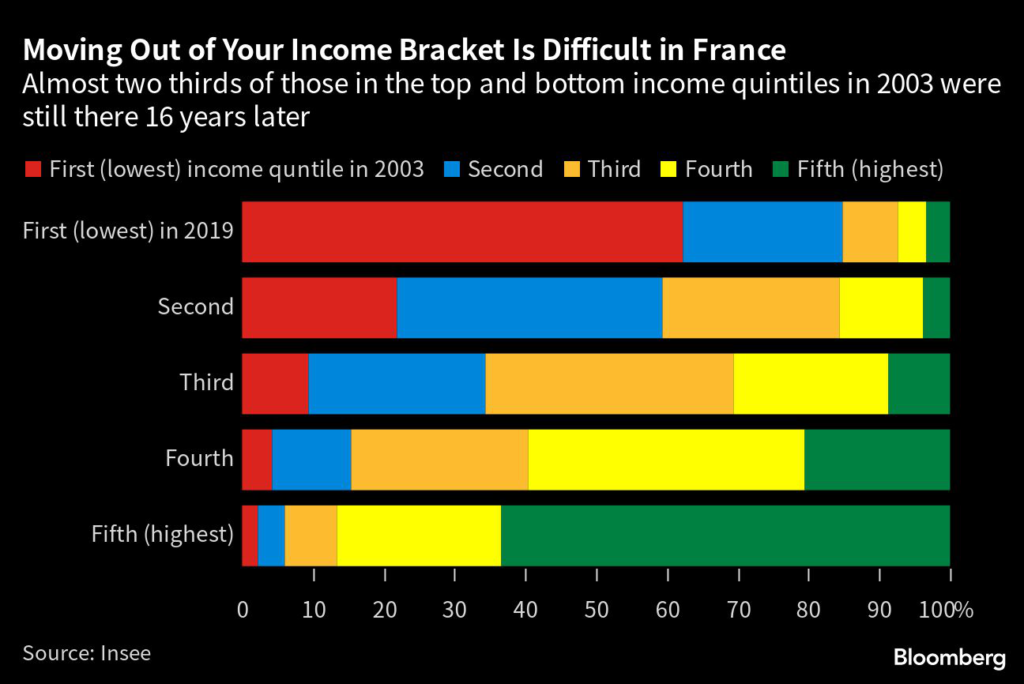(Bloomberg) — In the land of liberté, égalité and fraternité there is a problem: it’s hard to get ahead.
(Bloomberg) — In the land of liberté, égalité and fraternité there is a problem: it’s hard to get ahead.
According to the first long-term study by France’s statistics agency Insee, there was a 71% correlation between the position of French people on the income scale between 2003 and 2019, with the richest and poorest groups least likely to change bracket.
That inertia is greater than in the US, where a deeper history of income mobility studies has shown a higher probability of ascending or descending, the authors of the French report said.
The findings sound another alarm for a country that has seen repeated protests over living standards and inequality, despite relatively vast amount of spending on social welfare and income redistribution.
In 2018, the Yellow Vest protests forced President Emmanuel Macron to pledge billions of euros of spending to restore calm, and today he again faces a backlash against his plan to raise the retirement age, which unions say will unfairly penalize the lowest-paid, least skilled workers.
Key findings from Insee’s report:
- Starting from 2003, the correlation between levels on income scale was 89% after three years, 78% after ten years, and 71% after 16 years
- At 80%, the correlation over eight years was the same between 2003 and 2011 as between 2011 and 2019
- Among the lowest 20% in terms of income in 2003, 62% were still in that group in 2019
- Only 2% of the group rose to the level of the 20% highest incomes
- Among the lowest 10% in terms of income in 2003, 53% were still in that group in 2019, and 93% remained in the bottom half of the income distribution
- The 20% most well-off in 2003 were 28 times more likely than the 20% least well off to still be in that category in 2019
- Among the 1% most well-off in 2003, 41% were still in that group in 2019
The authors of Insee’s report said research shows that poor income mobility in France can be explained by factors including a strong correlation between qualifications and careers, unequal access to professional training or the cost moving to another region for work.
“An absence of mobility in the income scale can be the sign of a poor sharing of opportunities for career progression, with the risk that potential talents are not developed,” Insee economists Tristan Loisel and Michael Sicsic said.
More stories like this are available on bloomberg.com
©2023 Bloomberg L.P.










